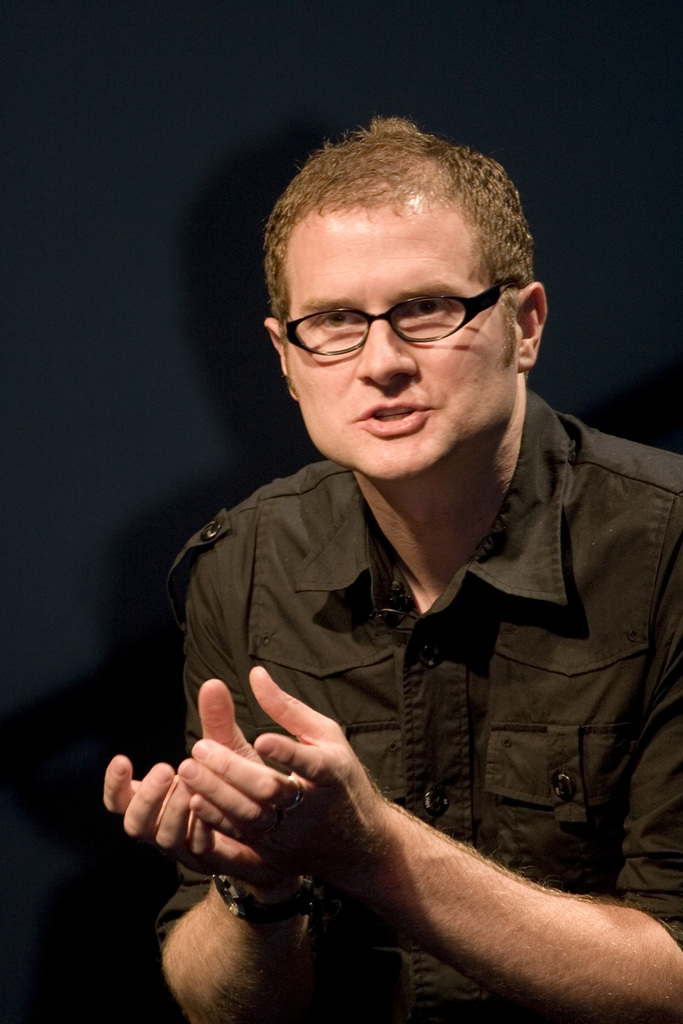After writing about Philip Clayton’s “Theology and the Church After Google: How This New Age Will Change Christianity” a few days ago, I found myself in several discussions about the topic. One of my conversation partners directed me to an article John Dyer wrote on the topic for Christianity Today‘s guest opinion column “Speaking Out,” which was published this past weekend.
 Dyer is a graduate of Dallas Theological Seminary where he is now employed as Director of Web Development. Dyer blogs about technology and is the author of the forthcoming From the Garden to the City: The Redeeming and Corrupting Power of Technology (August, 2011) His guest commentary, “Not Many of You Should Presume to be Bloggers: How Social Media Changed the Theological Debate,” recognizes how radically social media has changed how the average person engages in theological discussion. In a broader context, “publish or perish” has moved from a requirement of professors seeking to retain their positions to a mandate for anyone who uses social media. Dyer writes:
Dyer is a graduate of Dallas Theological Seminary where he is now employed as Director of Web Development. Dyer blogs about technology and is the author of the forthcoming From the Garden to the City: The Redeeming and Corrupting Power of Technology (August, 2011) His guest commentary, “Not Many of You Should Presume to be Bloggers: How Social Media Changed the Theological Debate,” recognizes how radically social media has changed how the average person engages in theological discussion. In a broader context, “publish or perish” has moved from a requirement of professors seeking to retain their positions to a mandate for anyone who uses social media. Dyer writes:
But the invention of social media, like blogs, Twitter, and Facebook, created a radical departure in communication. In pre-2004 Christianity (that is, Christianity before Facebook was invented), only a small group of Christian leaders and teachers had access to the printing press—but today everyone has WordPress. In pre-2004 Christianity it was difficult to become a published author, but today everyone is surrounded by dozens of “Publish” buttons. . . What few of us realize is that when we press those “Publish,” “Post,” “Comment,” and “Send” buttons, we are making the shift away from merely “believing” truth and stepping into the arena of publishing that belief. In doing so we are effectively assuming a position of leadership and teaching that prior to 2004 was not available to us.
So What?
 There are many examples, but few on the scale of what happened a few weeks ago. Rob Bell is one of the most recognizable names in American Evangelical Christianity. He is the pastor of the 10,000 member Mars Hill Bible Church and the author of several popular books. Bell has been on numerous speaking tours and has reached an even wider audience through a DVD series called Nooma. His latest book, Love Wins: A Book About Heaven, Hell, and the Fate of Every Person Who Ever Lived, will be released on March 15. While one might expect significant publicity, no one predicted that it would capture the attention and comments of as many people as it has to date.
There are many examples, but few on the scale of what happened a few weeks ago. Rob Bell is one of the most recognizable names in American Evangelical Christianity. He is the pastor of the 10,000 member Mars Hill Bible Church and the author of several popular books. Bell has been on numerous speaking tours and has reached an even wider audience through a DVD series called Nooma. His latest book, Love Wins: A Book About Heaven, Hell, and the Fate of Every Person Who Ever Lived, will be released on March 15. While one might expect significant publicity, no one predicted that it would capture the attention and comments of as many people as it has to date.
Erick Eckholm wrote an article for the New York Times covering how it came to be that Love Wins suddenly received widespread attention:
The furor was touched off last Saturday by a widely read Christian blogger, Justin Taylor, based on promotional summaries of the book and a video produced by Mr. Bell. In his blog, Between Two Worlds, Mr. Taylor said that the pastor “is moving farther and farther away from anything resembling biblical Christianity.”
“It is unspeakably sad when those called to be ministers of the Word distort the gospel and deceive the people of God with false doctrine,” wrote Mr. Taylor, who is vice president of Crossway, a Christian publisher in Wheaton, Ill. By that same evening, “Rob Bell” was one of the top 10 trending topics on Twitter. Within 48 hours, Mr. Taylor’s original blog had been viewed 250,000 times. Dozens of other Christian leaders and bloggers jumped into the fray and thousands of their readers posted comments on both sides of the debate, though few had yet seen the entire book. One leading evangelical, John Piper of Bethlehem Baptist Church in Minneapolis, wrote, “Farewell Rob Bell.”
In this case most who participated in the discussion by commenting on or writing blog posts, tweeting, or interacting on Facebook did so with little real knowledge of what Bell had written. Some of the blogs I browsed did note that while they were strongly against Bell’s position, which some claim moves toward universalism, they had not yet read the book. Most who bashed Bell on twitter seemed to be piling on to remarks by those regarded as Evangelical leaders, especially John Piper.
In formulating a response to the social media rich world in which we now live, Dyer provided the following counsel:
James warned us, “Not many of you should presume to be teachers, my brothers, because you know that we who teach will be judged more strictly” (James 3:1, NIV1984). James goes on to graphically portray the incredible power that our tongues have both to praise and to curse especially in the context of teaching. He then says, “Who is wise and understanding among you? Let him show it by his good life.” (James 3:13). Solomon echoes similar wisdom, “Even a fool is thought wise if he keeps silent” (Prov. 17:28).
It is time that we give considerable attention to this matter in our own lives and within our Christian communities.
- We must embrace a new understanding of theology and ensure our educational efforts about this new view reach all age groups within our parishes. In doing so, Clayton’s first thesis offers a helpful starting point: “In the Age of Google, theology is what you do when you’re responding to blogs, contributing to a Wiki doc or Google doc online (or on your own computer), participating in worship, inventing new forms of ministry, or talking about God with your friends in a pub.”
- We must be involved in social media. Talk alone is inadequate at best and injurious at worst. Formal theological education leading to advance degrees will continue to exist, but in new formats.